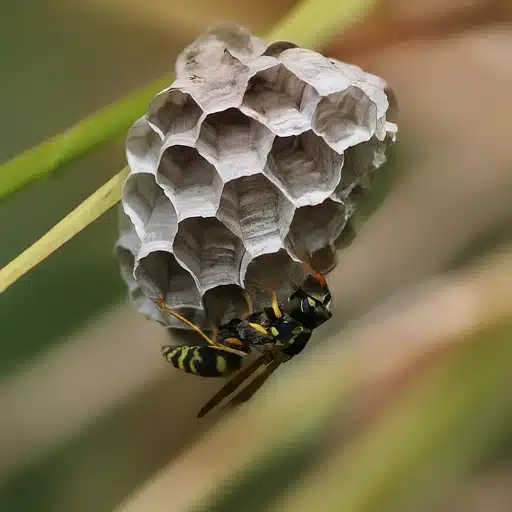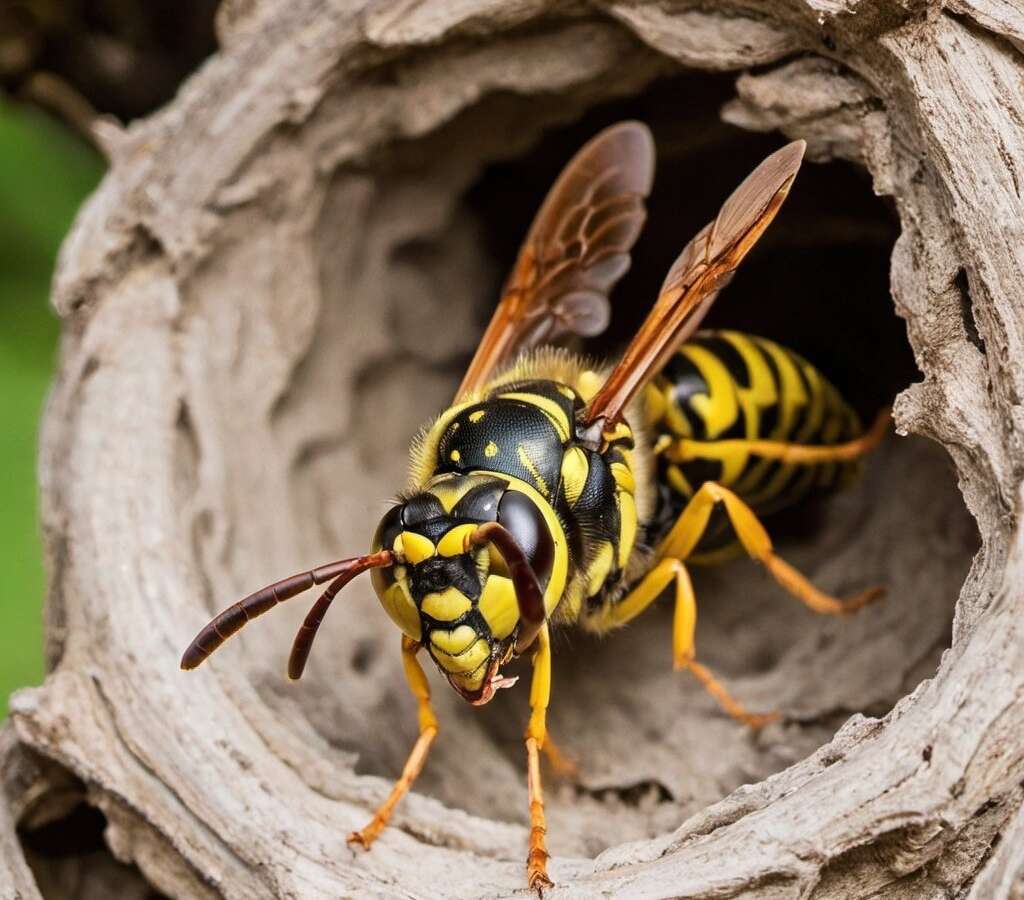Your Tulsa pest control company is equipped to assist you in managing wasps and other stinging insects. Wasps are flying insects known for their slender bodies, distinctive yellow and black markings, and a narrow waist. They are prevalent during the spring and summer months, and they can also pose a threat in the fall and winter, although they are primarily active in warmer weather. These insects are fiercely protective of their nests and can become problematic if they build one near you or your loved ones. For individuals allergic to their stings, encounters with wasps can result in significant suffering. Therefore, this article delves into the life cycle of wasps and explores strategies that you and your Tulsa pest control company can implement to safeguard yourself and your loved ones from these potential hazards.
Wasp Stings and Tulsa Pest Control
A wasp stings and injects a concoction of neurotoxins, typically used to paralyze its prey. While adult wasps feed on flower nectar, their young require protein for development, leading wasps to hunt spiders and grubs and use their stings to incapacitate prey. They then carry the prey back to their nest, lay an egg on top, and seal it inside. Upon hatching, the larva consumes the paralyzed insect for nourishment.
Wasp stings can cause a sharp, burning sensation. For most people, a simple first aid kit suffices to clean the wound and apply a bandage. Prompt removal of the stinger is crucial for effective treatment. However, if an allergic reaction occurs, the situation can escalate. Those with allergies risk anaphylactic shock if stung. If you suspect an allergy or experience severe symptoms, seek immediate medical attention. Contact your Tulsa pest control company for assistance with wasps and other stinging insects.
Wasp Life Cycle
As mentioned earlier, these insects lay eggs in the nest, which hatch into larvae. The larvae feed on the prey left by the adults within the nest. Upon reaching maturity, they undergo pupation to develop into adults. Once in the adult stage, they emerge from the nest, dry out their wings, and embark on their own. At this point, they initiate the reproductive process anew, perpetuating the lifecycle of the wasp colony. This cycle continues, with each generation of wasps contributing to the survival and expansion of the colony, ensuring the continuation of their species. Understanding this lifecycle is crucial for effective pest control strategies aimed at managing wasp populations. Check out our reviews!
If you’re having trouble with bees and wasps, or any other pests, then it’s time to call a Tusla pest control that can help you. Here at TermMax pest control, we are the best in the business when it comes to dealing with bees and wasps, or any other pests. We service the greater Tulsa area, including Broken Arrow, Coweta, Claremore, Catoosa, Owasso, Turley, Bixby, Jenks. Sand Springs, Sapulpa, Prattville, and so much more. Call today for a free estimate. We’re here to help!



